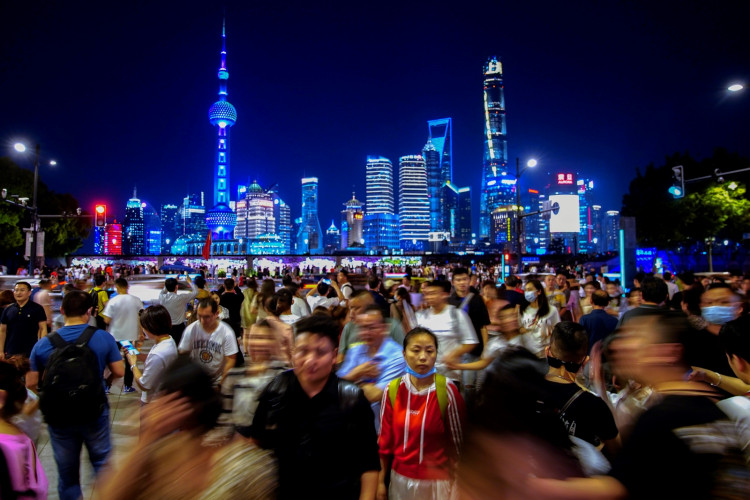China's leading infectious disease expert says the nation will likely open its doors by the first half of 2022 as its inoculation campaign gathers pace.
However, critics said "some unique difficulties" are preventing them from gauging vaccine effectiveness in real time.
Despite having administered at least one dose to more than 40% of its citizens, Feng Zijian, deputy director general of China's Center for Disease Control and Prevention, said that the country "has some unique difficulties" and is unable to match the U.S.'s ability to examine vaccine effectiveness in real time as cases and deaths ebbed.
Even though China has largely eliminated infections (there has been only one COVID-19-related fatality in the last 13 months), it is more difficult to determine whether vaccination is having an immediate impact.
"I don't think we've got to that point - if we try to open even when 60% or 80% of the population are vaccinated, it could still lead to a severe outbreak," Feng said Thursday. "It largely depends on the technical considerations, societal consensus and political concerns," he said.
Feng's remark indicates that China intends to remain closed even as other major economies rush to open up in the aftermath of large-scale vaccine efforts, which contradicts what a health official said Thursday.
According to Zhang Wenhong, a leading infectious disease expert, China will be able to reopen to countries with high inoculation rates and low infection rates in the first half of 2022.
Countries with a higher rate of inoculation, such as Israel, the U.S., and the U.K., will strike agreements to resume people-to-people exchanges in the second half of this year.
However, the date for the resumption of global travel remains unknown, as it will be determined by the overall vaccination rate and the speed of mutated variants, Zhang said.
Asked if it would be necessary to receive COVID-19 vaccines every year, just like influenza vaccines, Zhang said it depends on what percentage of people who have received a vaccine become reinfected, though most people believe it would be necessary because the protection generated by any vaccine fades over time.
However, officials appear unwilling to abandon the COVID playbook of closed borders, strict quarantine for foreign arrivals, and aggressive lockdowns when flare-ups recur.
In contrast, many countries with similar or even lower levels of vaccination have begun relaxing restrictions, reviving travel and lifting mask mandates, acknowledging that COVID-19 is endemic as long as most people will not become seriously ill as a result of vaccination.
Right now, China's only goal is to vaccinate all of its citizens.
"But we haven't figured out or decided at what rate of vaccination can we adjust containment measures," Feng said.





